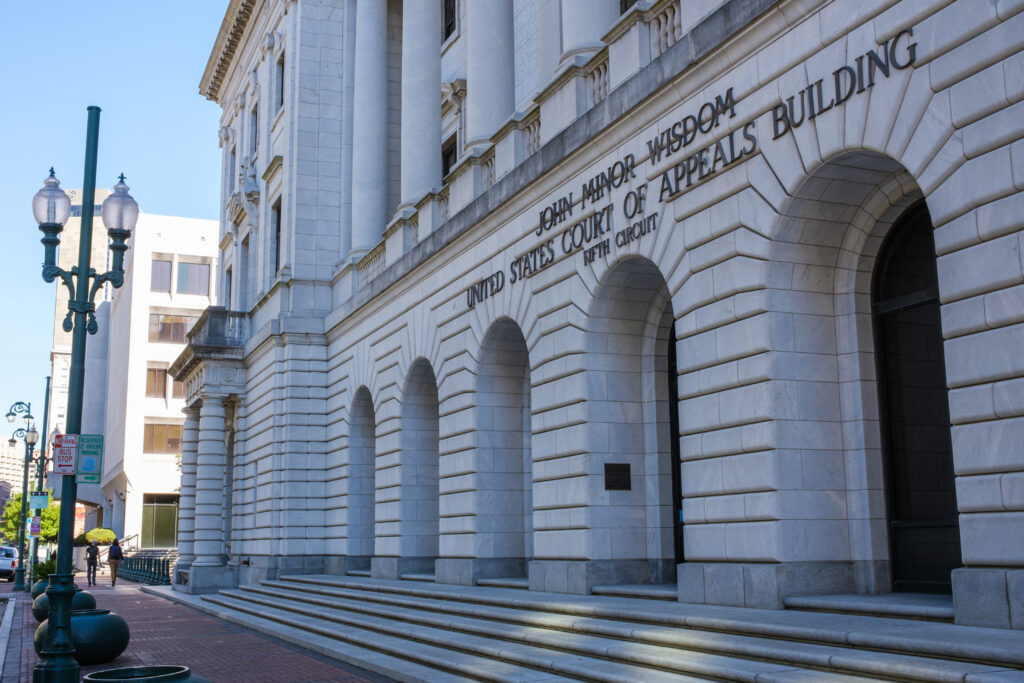5th Circuit Sets Timeline for New Louisiana Congressional Map Ahead of 2024 Elections
WASHINGTON, D.C. —Today, the 5th U.S. Circuit Court of Appeals vacated a 2022 decision that blocked Louisiana’s congressional map, but created a timeline for a new, fair map to be implemented before the 2024 elections. Gov.-elect Jeff Landry (R), who is set to be inaugurated on Jan. 8, 2024, has already stated he would call for the Legislature to conduct a special session.

This decision stems from a case challenging Louisiana’s congressional map under Section 2 of the Voting Rights Act (VRA). The plaintiffs argue that, by failing to include a second minority opportunity district, Louisiana’s congressional map that was drawn with 2020 census data, dilutes the voting strength of Black residents in violation of Section 2 of the VRA.
Today’s order gives the Louisiana Legislature until Jan. 15 to enact a new congressional map or determine that they will not adopt a new plan, in which case a trial will be held in the district court. Similarly, if the plaintiffs object to a plan approved by the Legislature, the district court will determine if that map is VRA-compliant.
In June 2022, a federal district court blocked Louisiana’s map for likely diluting the voting strength of Black Louisianans in violation of Section 2 of the VRA and ordered the state to adopt a new map with a second majority-Black district. Republican officials appealed this decision to the 5th Circuit and ultimately requested emergency relief from the U.S. Supreme Court, arguing that the Louisiana case “presents the same question as” the Alabama case, Allen v. Milligan.
The Supreme Court granted the Republicans’ requested relief and paused the decision blocking Louisiana’s map while also holding the case pending the outcome of Allen.
After Allen, the U.S. Supreme Court reinstated the order blocking Louisiana’s congressional map and sent the case back down to the 5th Circuit. Since litigation was paused while Allen was pending, the lawsuit did not yet make it to the remedial stage, the stage where the blocked map would be replaced with a new, fair map.
Since the lawsuit had not yet gone to the remedial stage, Republican officials asked the 5th Circuit to void the decision that blocked the map and for the case to go back to the trial court for a full trial. Oral argument was held on Oct. 6 to determine if the order blocking the map would need to remain in place as litigation continues.
Although the 5th Circuit found that the lower court did not err, it voided the order blocking the map because “the reasons for urgency” are gone.
The court held that although both the district court in Allen and this case “made factual findings that the plaintiffs would have ongoing and irreparable harm that will persist unless the map is changed” and that “harm is still present,” a trial can be held before the 2024 elections to determine what map will be in place.